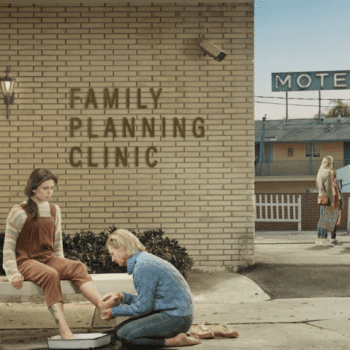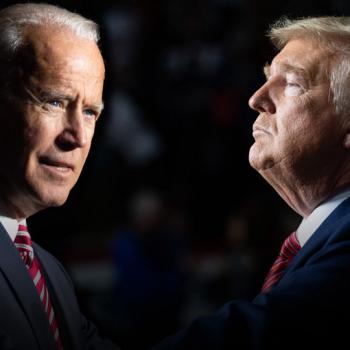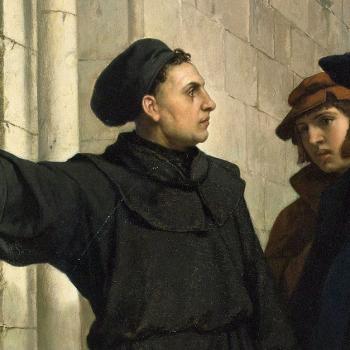In the aftermath of the death of George Floyd, the nation has been in a veritable uproar. At large, protests have turned to riotous looting and destruction in virtually every major U.S. city. Yet things have not been contained to the major cities across the states. Even my own hometown of 100,000 people received a taste of the action, which as a whole, can only be described as asinine. I am tempted to call it childish, but I expect more even out of an unruly child.
Unruly children don’t destroy parks built to accommodate handicapped children.
Unruly children don’t ransack, pillage, and destroy small businesses who have been hit the hardest after lockdowns.
Unruly children don’t beat women. Full stop.
Make no mistake. These were not isolated, unorganized incidents of violence or crimes of passion. This was opportunism, plain and simple. This is the fruit of decades of organized theory in the academic world finally being put into practice by people who want nothing more than mob justice. What we have seen is but a small foretaste of Critical Race Theory in action, and Critical Race Theory proponents don’t care in the least bit about George Floyd.
One of the key aspects of Critical Race Theory is that it is largely an ideology built off of narrative, which is why you might notice that many of the discussions surrounding statistics falls flat. People that have died are leveraged as pawns to advance the cause, which invariably leads to anarchy. The police get involved—here we are talking about normal police officers simply doing their jobs—and they are castigated as if they’ve stepped outside of their lawful and biblical jurisdiction to bring down the sword upon the evil doer. This sword is to function in righteousness and root out the evil doer from the midst of a nation, whether they function as an ordinary citizen or one who wields God’s retributive arm of justice. Yet function the sword must and shall, as it is the God-given means for justice to go forth in any land.
The key point being: we ought to actually know what justice is and expect to see it happen. You ought not be surprised if you commit violent and unlawful deeds in reaction to other violent and unlawful deeds, and find yourself swiftly receiving legitimate justice from the hand of those privileged to wield the sword. Those whose hands are swift to violence, no matter how grieved they may be, are not pursuing justice. They are pursuing vengeance. They are the proverbial fool (Pro. 1:8-19). Those who support such deeds or make excuses for why it is acceptable are likewise fools who have no biblical concept of justice. Neither desire justice. They desire mob-justice, which is built off of mankind’s anger, which does not accomplish the righteousness of God (Ja. 1:20). Neither the one pursuing vengeance through riotous acts of violence nor the one sanctioning it genuinely have the interests of minorities at heart, and this was made abundantly clear as many minorities lost their businesses in the wake of destruction in the riots.
An Example From Micah 6:8
Micah 6:8 is one of the most popular passages within the Old Testament, and for good reason, yet a reason I would argue is often unfounded simply because most who cling to this as a life-verse miss the entire point of why it is here. This verse is not dealing with issues of social justice, not in the sense we know of that term today. Instead, the prophet here is primarily concerned with calling God’s people back to covenant faithfulness with their God.
Everything we know about the circumstances in Micah’s day give us a clear indication that the Israelites were only concerned with partial conformity to the Law. They might come with sacrifices, but their hearts were far from God. Yet God dealt with Israel in greater terms than just sacrifices; God covenanted with them and explicitly revealed His desires to them, saying that he would bless them in their obedience and curse them in their disobedience. There was no question of what the people were to be doing, so He simply reaffirms that here; you know what is good, you know what is required of you: to do justice, love mercy, walk humbly with your God.
It’s important to note that none of these three things are commands in the text; they are verbal nouns, or otherwise, describing a state of being. They are to be a just people, a people who love steadfast faithfulness, and a people who walk in humility—all three of those things, with their God. The idea presented is that these things bear specific reference to their covenant with God Himself, so they are not blanket statements to be ripped out of context. The idea of “doing justice” is simply acting with equity and fairness with others, because God had dealt with them in equity and fairness. People in Micah’s day were characterized by a complete disregard to their covenantal obligations to one another. They would use unjust scales, lie in wait to murder one another, ambush travelers on the road; every man, woman, and child was wholly corrupt and only sought their own benefit.
The idea of loving mercy is not talking about showing mercy to others. Some of your bibles will say “love mercy” or if you have the NASB, “love kindness”—but the Hebrew term we find here is “hesed,” which is a term that speaks specifically to the love that God shows His people through His covenant. It is a covenant-keeping love. It is a steadfast, unflinching, resolute and immovable love based on the promise of God Himself. It is a love set upon a people called the Hebrews because of a promise made to Abraham. He’s calling them back to a covenant-keeping love. He is reminding them once again that they are a people whom God has covenanted with and shown His favor to, not because of who they are or what they’ve done, but because of His own sovereign choice and kindness. He is reminding them that He is just and loyal to them even when they fail to be—so on the basis of His steadfast and immovable covenant-keeping love, God is calling them back to covenant faithfulness to Him. In other words, He is telling them to uphold their end of the covenant and reaffirm their love for Him.
Finally, the idea of walking humbly speaks of obedience to God, in every aspect. We see the idea of “walking with God” come up repeatedly in Scripture, and every instance speaks towards our faithfulness to obey God’s commandments. If I were to put it even more clearly, they are a people who all have a dead faith; they have faith devoid of good works. They might seek to come with their sacrifices and offerings, yet they neglect the weightier matters of the Law. These three aspects of covenant-faithfulness to God all tie into the idea that God has always been concerned with the qualities of the heart in addition to sacrifice. God has always been interested in righteousness, love, humility, and obedience to all His commands. To put it another way: God is not merely interested in the shedding of blood for the forgiveness of sins, but in hearts that are truly devoted to Him. God is not saying sacrifice is unimportant, but that He requires qualities of the heart in submission to Him in addition to sacrifice.
In other words: if you want a clear indication to know whether or not you are the person whose heart is devoted to God and not just the person who presumes upon His grace, ask yourself these four questions:
- Am I a person characterized by a love of God’s justice?
- Am I a person characterized by a love of God’s covenant faithfulness?
- Am I a person characterized by a love of God’s commandments?
- Does my life show these things to be self-evident?
None of these evidences are present within what we’ve seen recently across our nation in the response to the death of George Floyd. In fact, they are altogether absent. In the demand for immediate justice, the nation has fallen headlong into the folly of vengeance, a vengeance that is targeting people who have had nothing to do with the death of George Floyd. We have a justice system in place for a reason. It may be slow, and it is certainly not perfect, but it is not up to individuals to instate mob-justice. The best thing that people could do in a time like this is to put the pitchfork down and let the courts do their job.
Justice is rarely quick, especially in a broken and fallen world where sin reigns supreme. Until the day God judges the heavens and the earth—ultimate justice will not be had. We see this plainly enough with the martyrs in Christ’s presence (Rev. 6:1). They cry out for God to avenge their blood, which gives us reason to believe there is still this sense of injustice even though they are free from sin. Why this becomes important is simply that on the Last Day, justice will come from the impartial One who upholds the very foundations of justice itself. Throughout the history of the earth, countless men and women have not received the justice they are due, yet one great day, they will.
This leads me to perhaps the most important point that I can make: if you want to see what needs to change, take a look in the mirror. It is not a system that needs to repent or be overthrown by human hands. It is not a single people group. It is not a minority or a majority ethnicity that needs to repent. It’s everyone. Every tongue, tribe, and nation is called to repentance and faith in Jesus Christ. Every individual on the face of the planet needs to bow before their Maker in repentance and call upon Christ as Lord for the forgiveness of their sins and the simple reason for this is that every man is a sinner.
Until sin is seen for what it truly is and actually dealt with at the cross; until repentance and sanctification ensues, nothing will change in the heart of men at large. They will do what they do best: sin. Yet on that Final Day, God will do what no man can do: bring about complete and utter justice that is consistent with His covenant. If you’re not in Christ, you don’t want that kind of justice because it’s not good news for you. You want the gospel. And yet many professing Christians seem to think the gospel is incapable of doing anything at all to solve the issue, mainly, because they want results now.
That the gospel is not seen as inherently practical and immediately transformative is such a crucial part of the problem, one that is altogether more depressing coming from those within the church. I expect it from unbelievers, whose hope is in another broken system that will save them from this broken system. Yet from believers, I expect they might actually believe that through the weakness of the gospel, God is pleased to do His work, promising that final justice will be doled out on that last, Great Day. It is little wonder why the church at large is impotent to be a balm to people and misunderstands the fundamental nature of justice, confusing it for the mob-justice that is ever so prevalent with what is coined as social justice. They don’t even believe what they claim to believe at the most basic of levels. It makes me wonder: just what in the world are they teaching you from the pulpit? What kind of puny god do you serve?
The gospel is the only thing that contains the power of God to transform hearts, lives, and entire societies in a manner that is consistent with God’s will. The only thing that actually contains the power of God to unify divided peoples is the gospel itself. The gospel is the only thing that can change a murderer into one who stands for life, a thief into a generous philanthropist, a fornicator into one who honors the marriage bed, and so on and so forth. Mob-justice doesn’t leave room for grace nor the gospel, because it hates the gospel. The ultimate reason for this is that mob-justice doesn’t leave room for equality before the law, in fact, mob-justice hates the law, and especially God’s own Law. It doesn’t value individual responsibility before the Law because such a thing exposes the darkness of human hearts. Men don’t commit deeds of darkness because they are left to no other means. People are not being driven to deeds of darkness because they are truly mourning the death of George Floyd. People are not driven to wickedness for any other reason than they love the darkness and hate the light.













